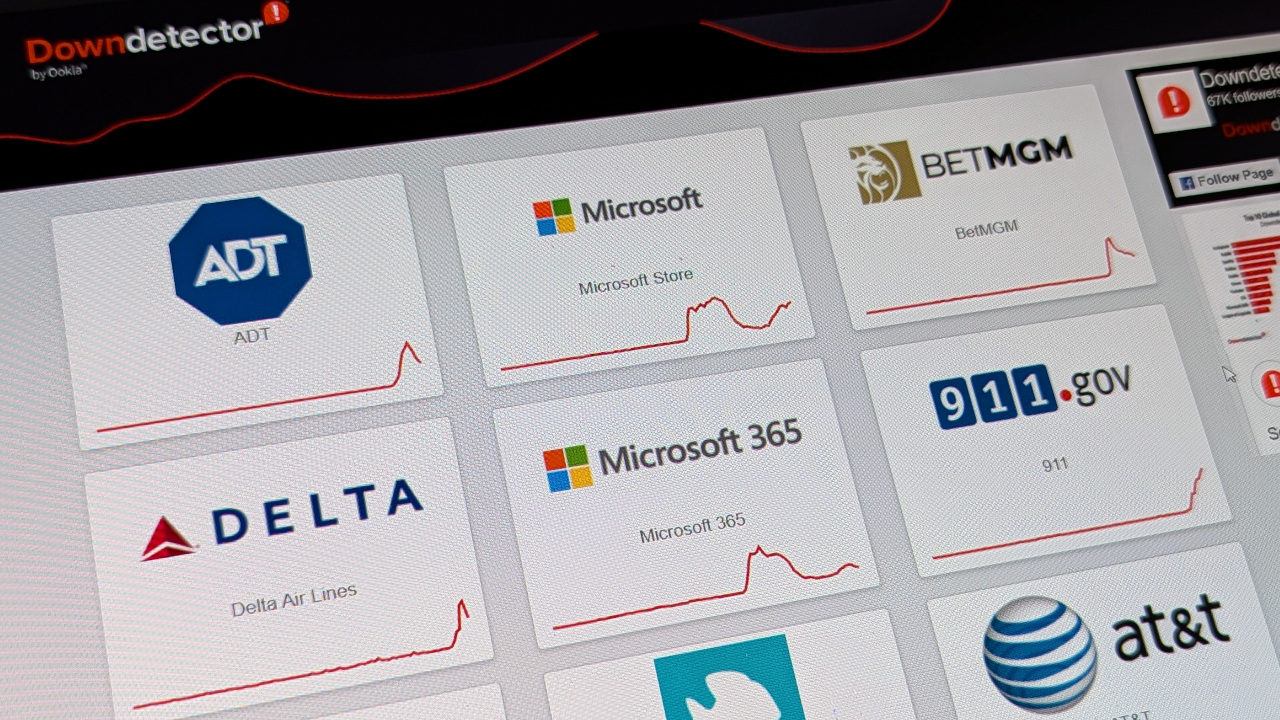What you need to know
- Delta’s CEO recently blamed Microsoft for the CrowdStrike outage costing the airline $500 million.
- Microsoft called the Delta CEO’s comments “incomplete, false, misleading, and damaging to Microsoft and its reputation.”
- Microsoft claims that it offered help to Delta on several occasions, including CEO Satya Nadella reaching out to Delta’s CEO, but that its offers had been turned down or ignored.
As the dust settles following one of the largest outages in global history, company executives are working to assess who and what was at fault for the CrowdStrike outage that left over 8.5 million Windows devices with BSoD errors for hours. Delta was one of the companies affected by the outage, which reportedly cost the airline $500 million. Delta CEO Ed Bastian pointed fingers at Microsoft last week.
“When was the last time you heard of a big outage at Apple?” said Bastian. The CEO indicated that Microsoft has “probably the most fragile platform” as well.
Microsoft has a drastically different telling of the events surrounding Delta and the CrowdStrike outage. The tech giant called Bastian misleading, claimed the Delta CEO has not responded to Microsoft CEO Satya Nadella, and suggested that Delta’s issues run deeper than the CrowdStrike outage.
“Microsoft empathizes with Delta and its customers regarding the impact of the CrowdStrike incident. But your letter and Delta’s public comments are incomplete, false, misleading, and damaging to Microsoft and its reputation,” said Mark Cheffo in a letter written on behalf of Microsoft. Cheffo is the co-chair of Dechert, a global law firm.
The letter penned by Cheffo was shared in its entirety by The Verge. Snippets of the letter show the strength of Microsoft’s disagreement with the claims of Bastian.
“Even though Microsoft’s software had not caused the CrowdStrike incident, Microsoft immediately jumped in and offered to assist Delta at no charge following the July 19th outage. Each day that followed from July 19th through July 23rd, Microsoft employees repeated their offers to help Delta. Each time, Delta turned down Microsoft’s offers to help, even though Microsoft would not have charged Delta for this assistance.”
A Delta employee told Microsoft that the company was “all good,” according to the letter. That claim by the employee reportedly occurred on July 22, 2024, which is the same day Delta canceled over 1,100 flights.
Cheffo claimed that despite Microsoft CEO Satya Nadella reaching out to Bastian on July 24, 2024, Nadella was unable to receive a response from Bastian. The letter also claimed that several senior Microsoft executives were left ignored by counterparts at Delta.
🔥The hottest trending deals🔥
Who is to blame?
Rather than simply deflecting blame away from Microsoft, Cheffo laid blame on Delta, which “apparently has not modernized its IT infrastructure.” Specifically, the letter stated that Delta’s IT system, which is serviced by IBM and other technology providers, caused the most problems for the airline. If that statement is accurate, it would shift blame away from Microsoft and onto Delta for relying on out-of-date infrastructure.
The letter draws a distinction between Delta and other airlines, the latter of which were said to be better equipped to respond to the outage thanks to modernized infrastructure.
Delta is not the first to blame Microsoft for the outage. While the faulty CrowdStrike update caused the incident, end users saw the infamous “Blue Screen of Death,” which led many to attribute the outage to Microsoft and Windows.
CrowdStrike also fired back at Delta, calling a lawsuit by the airline “meritless.” As the name of the incident suggests, the CrowdStrike outage ultimately points back to CrowdStrike. While some companies were better prepared for an outage of this magnitude, the source of the issue was a faulty update sent out by CrowdStrike. The CEO of CrowdStrike apologized for the incident on July 19, 2024. While CrowdStrike agreed that its faulty update caused the outage, the company denied gross negligence or misconduct, both of which CrowdStrike had been accused of by Delta.
Even if CrowdStrike was not negligent, the company will likely have to do more than give out broken $10 Uber Eats gift cards to earn back its previously positive reputation.





